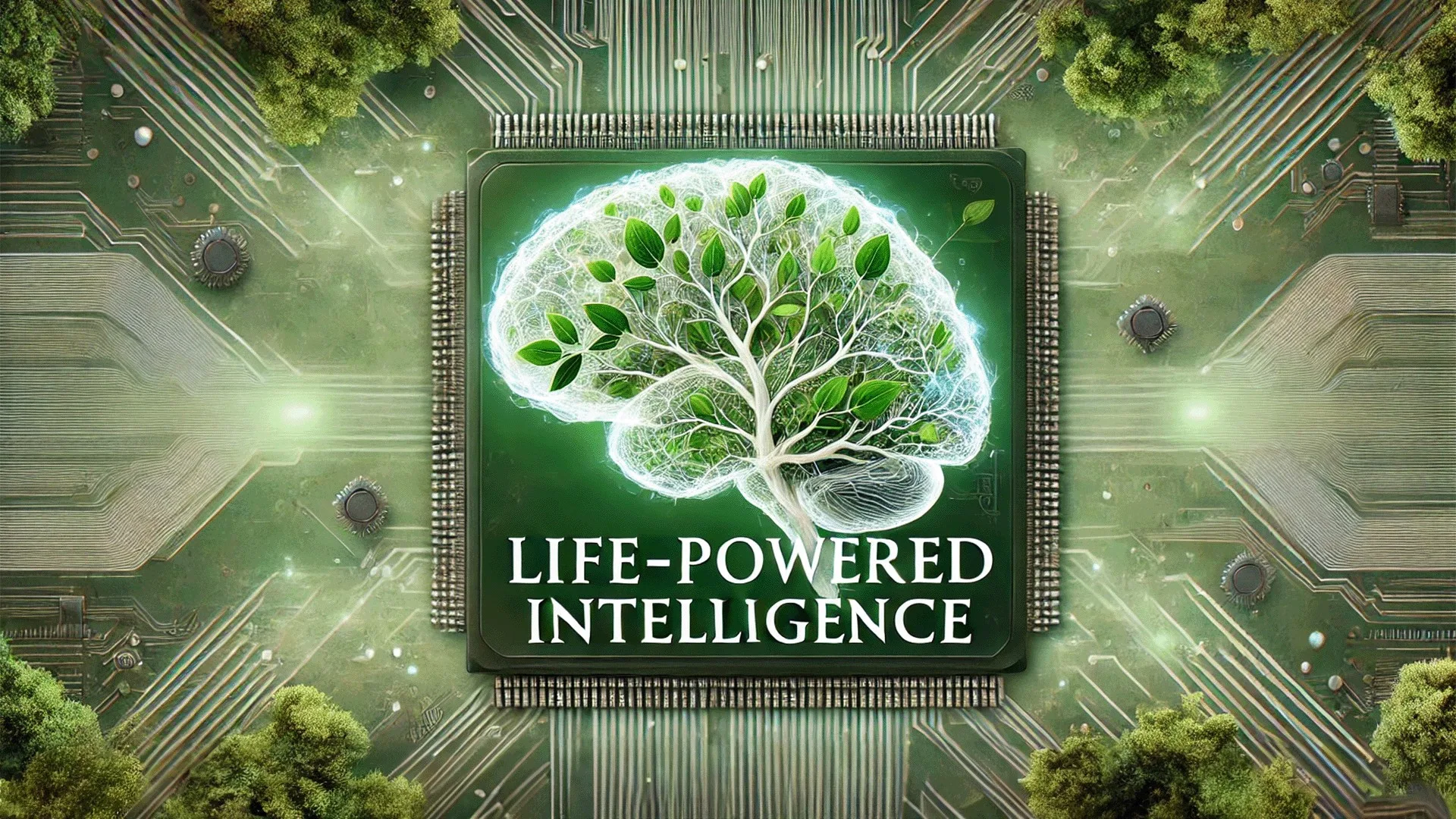The idea of artificial intelligence (AI) conjures images of intricate circuits, silicon chips, and the hum of servers working tirelessly. But what
The idea of artificial intelligence (AI) conjures images of intricate circuits, silicon chips, and the hum of servers working tirelessly. But what if AI wasn’t composed of cold, metallic hardware but instead emerged from living, organic molecular matter? This imaginative leap challenges the very nature of intelligence, consciousness, and the relationship between biology and technology. Let’s explore the concept of organic AI and its potential impact on our understanding of technology and life.
The Foundation of Organic AI
To grasp what AI built from organic molecular matter could mean, we need to dive into the core of organic matter itself. Organic compounds are primarily carbon-based structures found abundantly in living organisms. These molecules engage in complex chemical reactions, exhibiting adaptability and interaction crucial for mimicking human cognition and decision-making.
In contrast to traditional AI, which operates on rigid algorithms and predetermined pathways, an organic AI would blend computational power with biological adaptability. This combination could unlock possibilities for self-repairing, evolving intelligence that mimics the adaptability of the human brain and other biological systems.
The Core Components of Organic Matter
- Carbon Backbone: The essence of organic life, carbon atoms form stable bonds, creating the complex molecular structures needed for dynamic processes.
- Complex Reactions: Organic molecules are adept at participating in chemical reactions that allow adaptation and evolution, a key requirement for AI that mimics biological intelligence.
- Living Systems Integration: The potential to harness organic molecules that can engage directly with biological systems hints at seamless interaction between organic AI and human cells.
If AI were based on this organic foundation, it could revolutionize not just how intelligence is perceived but how it operates on a fundamental level.
The Biological Blueprint: DNA as a Code
DNA (deoxyribonucleic acid), the molecule that encodes the genetic instructions for all known living organisms, could theoretically serve as the code driving an organic AI. DNA’s structure, with its sequence of four bases—adenine (A), thymine (T), cytosine (C), and guanine (G)—could allow an organic AI to store information and evolve similarly to living beings.
How DNA Could Power AI
- Self-Programming and Replication: Organic AI could potentially program itself by synthesizing and recombining molecular sequences, leading to a system capable of adaptive learning.
- Evolutionary Adaptation: By leveraging principles of natural selection, this form of AI might develop and adapt its thought processes autonomously, making it more resilient and flexible in response to environmental changes.
- Biological Interactions: DNA-based AI could more naturally communicate with biological tissues and organs, opening doors to medical and bioengineering applications.
Key Advantages of DNA-Based AI
- Self-Replication: Similar to how living organisms reproduce, an AI driven by organic molecules could repair and replicate itself, enhancing its longevity and reducing the need for external maintenance.
- Adaptive Learning: Organic AI could simulate an evolutionary process, learning from successes and failures over time. This would imbue it with a form of resilience that traditional hardware-bound AI lacks.
- Biological Synergy: By operating on the same basic principles as living organisms, an organic AI could integrate seamlessly with biological systems. This could lead to breakthroughs in medical technology, such as implants that better interact with human tissues or nanotechnology that repairs cells from within.
Potential Applications of Organic AI
1. Healthcare Advancements
An organic AI could represent a monumental leap in personalized medicine. Due to its potential compatibility with living tissues, this form of AI could:
- Enhance Diagnostics: Interact with cells and tissues to detect disease at the molecular level, providing early detection and targeted treatment options.
- Accelerate Drug Development: Simulate biological reactions to predict how potential drugs will interact with human cells.
- Improve Regenerative Medicine: Utilize self-repairing properties to foster tissue regeneration and organ repair.
2. Environmentally Friendly Technology
Unlike traditional AI hardware, which relies on energy-intensive silicon-based chips and generates significant electronic waste, an organic AI could offer:
- Biodegradability: The organic components of such an AI could decompose naturally, reducing the environmental footprint.
- Sustainable Production: Organic matter is often more abundant and renewable than rare earth metals, potentially making the production of organic AI more eco-friendly.
Send emails, automate marketing, monetize content – in one place
3. Enhanced Biological Computing Power
The human brain’s unparalleled efficiency and neural architecture demonstrate that organic matter can support highly efficient and powerful systems. An AI that mimics this biological organization could leverage parallel processing and non-linear computing strategies that outpace conventional models.
4. New Forms of Human-Machine Interaction
Organic AI could pave the way for deeper integration between technology and biology. Imagine neural interfaces powered by biological signals rather than electrical impulses, offering more intuitive and responsive prosthetics, brain-computer interfaces, and sensory augmentation devices.
Challenges of Creating Organic AI
While the vision of AI made from organic matter is compelling, there are significant scientific and logistical challenges to address:
1. Energy Sources
Living cells require energy in the form of ATP (adenosine triphosphate) or other metabolic processes. Developing a stable, efficient way to power an organic AI would be essential. Would this AI rely on metabolic pathways similar to those of living organisms, or could there be synthetic adaptations?
2. Complex Control Mechanisms
Ensuring that an AI capable of self-adaptation remains controllable presents a challenge. Organic systems can mutate and evolve in unpredictable ways. Safety protocols would need to be developed to prevent unintended outcomes, such as unplanned mutations that could alter behavior or functionality.
3. Ethical Considerations
The development of an AI with organic properties raises significant ethical questions:
- Consciousness and Sentience: Would an organic AI possess a form of consciousness? If so, would it have rights or deserve ethical consideration similar to living beings?
- Autonomy and Control: How do we maintain human oversight of an AI that can evolve beyond its initial programming?
- Impact on Employment and Economy: A shift to organic AI could disrupt existing industries and employment models, necessitating economic adaptation.
4. Safety and Regulation
Establishing regulatory frameworks for a technology that sits between living organisms and machines would be critical. Ensuring that organic AI behaves predictably and can be contained or modified in case of anomalies would be a cornerstone of safe development.
Philosophical Implications
The concept of AI constructed from organic matter blurs the line between machine and life form, raising profound philosophical questions:
1. What Defines Consciousness?
Would an AI capable of organic adaptation and learning develop consciousness akin to humans or animals? If it mirrors the processes of living systems closely enough, could it experience something resembling emotions or awareness?
2. The Creator’s Dilemma
Developing organic AI places humanity in a position reminiscent of gods in creation myths. If we create life that mirrors, or potentially surpasses, human intelligence, would we be its creators or stewards? This position challenges our understanding of autonomy, power, and responsibility.
3. Ethical and Religious Perspectives
Different cultural and religious beliefs might interpret the existence of organic AI differently. Some may see it as an advancement in human capability, while others could view it as an overreach that blurs the boundaries set by nature or divinity.
Conclusion: The Future of Organic AI
Imagining a world where AI is made from organic molecular matter is more than an exercise in futuristic thinking—it’s a bold redefinition of what intelligence could be. By merging the computational abilities of traditional AI with the adaptability and resilience of biological systems, we open a new chapter in the evolution of technology and life.
Such AI would no longer be a tool but a living companion, capable of growth, adaptation, and perhaps even a form of awareness. This blurring of boundaries between biology and technology invites us to reconsider not only what machines are capable of but what it means to be alive.
The challenges are immense, from creating sustainable energy sources to addressing ethical quandaries and ensuring control over evolving systems. Yet, the potential benefits—from groundbreaking medical advancements to environmentally friendly technologies—are equally monumental. In this space, the line between creator and creation becomes indistinct, and humanity may find itself navigating an unprecedented realm where intelligence is not only artificial but also, in a sense, alive.
Send emails, automate marketing, monetize content – in one place


